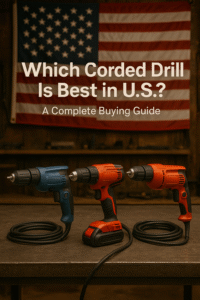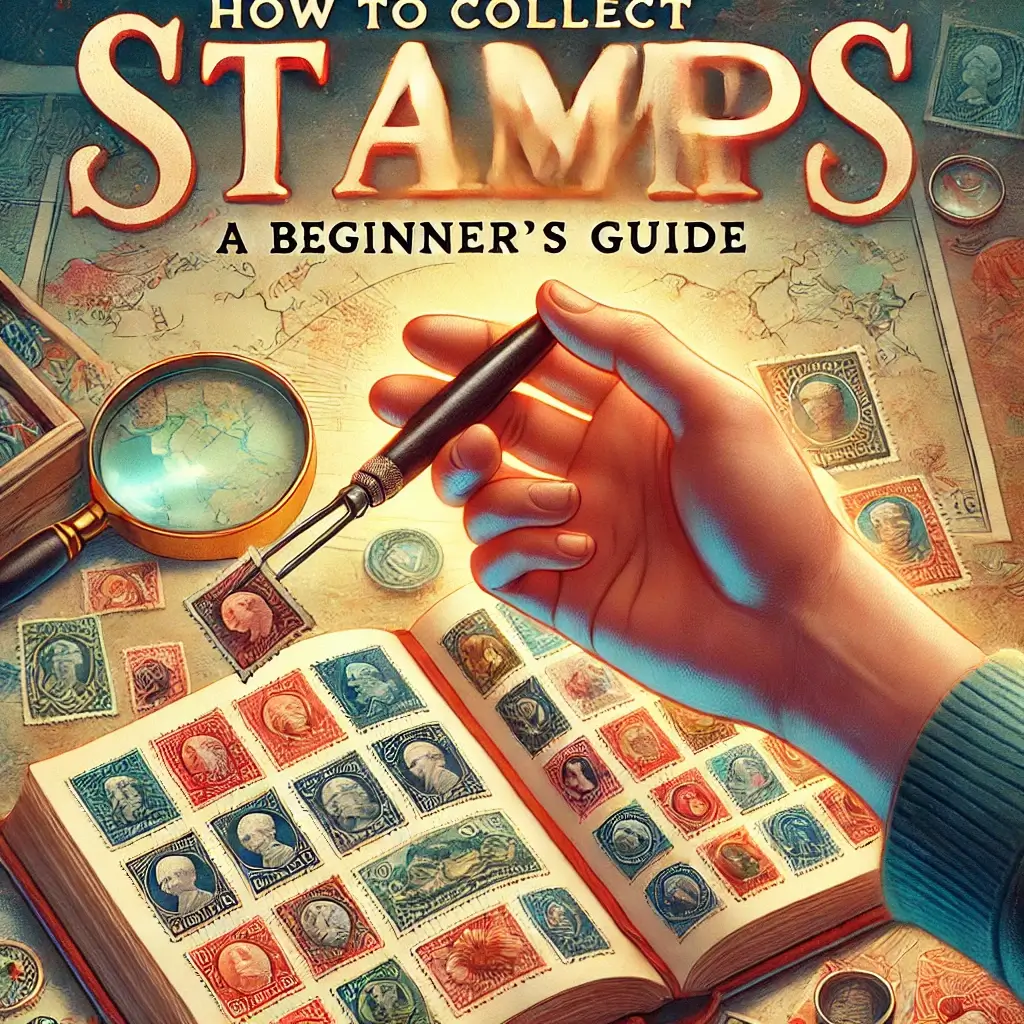Which Corded Drill Is Best in U.S.? A Complete Buying Guide
In an age where cordless everything reigns supreme, the humble corded drill might seem like a relic. But ask any seasoned contractor, woodworker, or serious DIYer, and they’ll tell you a secret: when it comes to raw, unrelenting power, the corded drill is still king. There are no batteries to fade, no charging to worry about—just pure, consistent performance, project after project.
But which one is right for you? The U.S. market is flooded with options, from lightweight drills for simple household tasks to beastly hammer drills that can chew through concrete. Choosing the wrong one can lead to frustration and stalled projects. Choosing the right one? It feels like wielding superpowers.
This guide is your definitive roadmap. We’re cutting through the noise and technical jargon to help you find the absolute best corded drill for your specific needs. We’ll cover everything from Amps and chuck size to special features, and recommend top-tier models you can count on.
Why Go Corded in a Cordless World?
Before we dive into the models, let’s talk about why a corded drill deserves a prime spot in your workshop. While the convenience of cordless is undeniable, there are compelling reasons to plug in.
- Uninterrupted Power: This is the number one reason. A corded drill delivers 100% of its power, 100% of the time. It will never fade or die in the middle of a critical task like mixing mortar or drilling through a thick steel beam.
- Maximum Torque and Speed: For the toughest jobs—like driving large lag bolts or using massive hole saws—corded drills consistently offer higher sustained torque and RPMs than their cordless counterparts.
- Cost-Effectiveness: Dollar for dollar, you get significantly more power from a corded drill. You’re not paying a premium for battery technology, chargers, and multiple power cells.
- Longevity and Durability: With simpler internal mechanics (no complex battery management systems) and no batteries to eventually degrade, a quality corded drill can easily last for decades.
For a head-to-head comparison to help you decide which power source fits your overall needs, check out our detailed analysis on which is better: corded or cordless drills.
The Corded Drill Mantra
Choose a corded drill when your priorities are maximum power, unlimited runtime for demanding jobs, and long-term value.
Decoding the Specs: How to Choose Your Corded Drill
Understanding the key specifications is crucial. Let’s break down what matters most.
Amperage (Amps): The Engine of Your Drill
For corded drills, Amps are the single most important measure of power. It tells you how much electrical current the motor can handle, which directly translates to its ability to perform under load without overheating. More Amps = more power.
- 5-7 Amps: The sweet spot for homeowners and general DIY. This range is perfect for drilling into wood, drywall, and plastics, and for occasional heavy tasks.
- 8-10+ Amps: Professional-grade power. If you’re drilling into metal, concrete (with a hammer drill), or using large-diameter bits and accessories, you need the muscle of a high-amp motor.
Chuck Size: The Handshake with Your Bit
The chuck is the part that grips the drill bit. Its size determines the maximum shank diameter it can accept.
- 3/8-Inch Chuck: Common on lighter-duty and more compact drills. It’s perfectly adequate for most standard drill bit sets.
- 1/2-Inch Chuck: The standard for serious, heavy-duty drills. It can hold larger bits required for more demanding applications and offers superior gripping strength. For an all-purpose corded drill, a 1/2-inch chuck is highly recommended.
You’ll also choose between a keyless chuck (hand-tightened for convenience) and a keyed chuck (tightened with a special key for maximum bit-gripping force, which is common on hammer drills).
Hammer Function: The Concrete Killer
This is a critical distinction. A standard drill only spins. A hammer drill both spins and punches the bit forward and backward rapidly (thousands of “blows per minute” or BPM). This pulverizing action is essential for drilling into hard materials like concrete, brick, and masonry. A regular drill will simply not work for these materials.
Variable Speed & Reverse
A variable speed trigger is non-negotiable. It gives you precise control—start slow to prevent the bit from “walking,” then ramp up the speed. The reverse function is equally essential for backing out screws or freeing a jammed bit.
The Best Corded Drills in the U.S. (2025 Review)
We’ve evaluated the market based on power, durability, features, and user reviews to bring you the top picks for every need and budget.

DEWALT DWD210G 10-Amp 1/2-Inch Pistol Grip Drill
This is the workhorse. The DWD210G is a perfect embodiment of why corded drills are still essential. Its powerful 10-amp motor, constructed with overload protection, can handle high-torque applications like a champ. It’s ideal for drilling large holes in wood with self-feed bits or hole saws, and it has the guts for steel fabrication. It’s robust, reliable, and perfectly balanced for all-day use.
Chuck Size: 1/2-Inch
Speed: 0-1,200 RPM
Perfect For: General construction, serious woodworking, metal drilling, and all-around heavy-duty tasks.

DEWALT DW511 1/2-Inch VSR Hammer Drill
When you hit a wall—literally—this is the tool you need. The DW511 is a legend in the construction world for its reliability and power. Its 8.5-amp motor (note: some listings say 7.8A, newer models are 8.5A) delivers high performance for drilling into concrete and masonry. The dual-mode selector lets you switch instantly between standard drilling and hammer drilling. A 360-degree side handle provides excellent control, which is crucial when the tool is hammering away.
Chuck Size: 1/2-Inch (Keyed)
Speed: 0-3,000 RPM / 0-51,000 BPM
Perfect For: Anchoring into concrete, drilling into brick walls, and any masonry work.

SKIL HD182001 7.5-Amp 1/2-Inch Corded Hammer Drill
Proving that you don’t need to break the bank for power, this SKIL model is a fantastic value. For the price of a standard drill, you get a capable 7.5-amp motor AND a hammer drill function. It features a heavy-duty 1/2-inch keyed chuck for secure bit retention and a side-assist handle for controlled drilling. For the homeowner who needs to occasionally tackle tough materials like brick or concrete without investing in a pro-grade tool, this is the smartest buy on the market.
Chuck Size: 1/2-Inch (Keyed)
Function: Drill & Hammer Drill
Perfect For: Budget-conscious DIYers, homeowners with occasional masonry projects.

Makita DS4012 1/2-Inch Drill, 8.5-Amp
This drill is not about speed; it’s about pure, unadulterated twisting force. The Makita DS4012 is a high-torque, low-RPM beast. Its powerful 8.5-amp motor and geared-down transmission (0-600 RPM) make it an absolute monster for applications that would stall lesser drills. It’s the top choice for mixing mud, grout, or paint, and for drilling with large-diameter ship auger bits or hole saws. The D-handle provides leverage to control the immense torque.
Chuck Size: 1/2-Inch (Keyed)
Speed: 0-600 RPM (High Torque)
Perfect For: Mixing materials, drilling large-diameter holes, plumbing, and electrical rough-in.
Safety First: Taming the Beast
A powerful corded drill demands respect. The high torque can cause the tool to twist violently if the bit binds, potentially causing wrist or hand injuries. Always follow basic safety protocols:
- Wear safety glasses. No excuses.
- Use the side handle. If your drill comes with one, use it. It provides the leverage needed to control the tool’s torque.
- Secure your workpiece. Use clamps to ensure the material you’re drilling doesn’t spin.
- Start slow. Use the variable speed trigger to start the hole accurately before ramping up to full speed.
Mastering your tool is key. For more guidance on getting the most out of your new drill, see our tutorial on how to use a drill machine for home improvement.
Frequently Asked Questions
How many amps do I need for a corded drill?
For general home and DIY use, 5 to 7 amps is plenty. For heavy-duty, continuous use, or for drilling into hard materials like metal and concrete, step up to a drill with 8 amps or more.
Do I really need a hammer drill for brick?
Yes. While you might be able to make a single, small hole in soft brick with a standard drill and a masonry bit, it will be incredibly slow and will damage your drill. For anything more than that, a hammer drill is essential. Its pulverizing action is designed specifically for this task.
Can I use a corded drill to drive screws?
You can, but it’s not ideal. Corded drills typically have high speeds and immense torque with less sensitive clutches, making it very easy to strip screw heads or overdrive them. An impact driver or a cordless drill/driver is a much better tool for fastening.
Which brand is best for corded drills?
Brands like DEWALT, Makita, Bosch, and Milwaukee have built legendary reputations for producing durable, high-performance corded tools. You generally can’t go wrong with any of them. For budget-conscious buyers, brands like SKIL and Ryobi offer excellent value and performance for home use.
Conclusion: The Right Choice Is Plugged In
While the world of tools continues to evolve, the corded drill remains a cornerstone of any serious toolkit. Its unwavering power and reliability are simply unmatched for demanding jobs. By understanding the different types of drill machines and their unique strengths, you can make an informed choice.
Your “best” corded drill comes down to an honest assessment of your needs. Are you a homeowner needing a reliable tool for repairs? Or a pro who needs to drill anchor holes in concrete all day? Match the Amps, chuck size, and features to your primary tasks, and you’ll be investing in a tool that will serve you faithfully for years, if not decades.
Once you’ve made your choice, you’ll be amazed at the sheer number of uses of a drill machine you’ll find around the home and workshop. And if you want to see our top picks in every category, don’t miss our ultimate guide to the best corded drills on the market.


